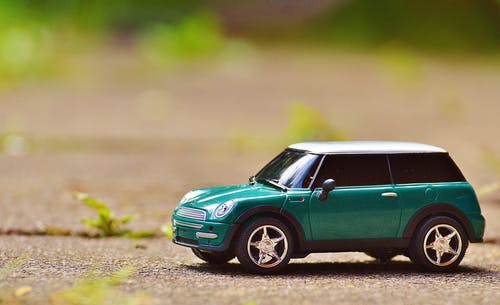
On average, a new car payment is $554, while used cars come in at $391. In either case, that’s a big chunk of a household’s budget. As a result, if you get the opportunity, paying your auto loan off early might seem like an enticing option. But does that mean it’s a smart move? If you are wondering when you should pay off your car or keep up with the monthly payments, here’s what you need to consider.
Your Budget
First and foremost, if your income doesn’t necessarily support the size of your monthly car payment, paying it off may be a smart move. Even if you have higher interest debts, an auto loan’s payment size is usually much larger by comparison.
For example, an average credit card minimum payment comes in near $124 per month. That’s far less than a $391+ auto loan payment.
If your budget needs more breathing room, paying off your car may give it to you. Then, once you rid yourself of that burden, you can always add some of that savings to a high-interest debt payment, allowing you to tackle it faster and still have a larger buffer.
Other Debts
Typically, auto loans aren’t a person’s highest interest debt. The average credit card, for example, comes in at 15.09 percent while a car loan comes in at 5.27 percent (for a 60-month term). That’s close to a 10 percent difference.
If you have the ability to put an additional lump sum on a debt, focusing on higher interest ones is a wise decision. It lets you reduce what you’d pay in interest overall, creating an opportunity to come out ahead financially.
Savings and Investing
There are situations where using extra cash to pay off any debt isn’t necessarily the right move. For example, if you don’t have an emergency fund, you might want to set the money aside. That way, you have a buffer in case the unexpected occurs, allowing you to avoid taking on additional debt to handle it.
The standard advice is to have a minimum of $1,000 in savings, even if you have high-interest debts. However, getting at least three to six months of living expenses set aside is usually a better target.
If higher interest debts aren’t a concern, then that doesn’t mean you shouldn’t consider keeping up with your car payment. If your loan is at a particularly low interest rate, then you may be better off investing the money. At times, it possible to secure a return that’s higher than the interest rate you’re paying on your car. That means, by investing instead, you’re coming out financially ahead.
Peace of Mind
Sometimes, paying off a debt isn’t about anything financial; it’s purely about peace of mind. The mere idea of owing a company on something as critical as a vehicle could be a lot to bear, leading to anxiety and worry.
If getting rid of your auto loan simply makes you feel better, then that alone could make it worth doing. Financial stress is hard to shoulder, so relieving some of that burden is worth considering, even if that’s the primary benefit you experience. After all, what you end up gaining in this case is immeasurable, making it a perfectly justifiable reason.
Do you make monthly payments on a car loan, or did you decide to pay it off faster? Share your thoughts in the comments below.
Read More:
- Can You Have Two Car Loans at Once?
- 5 Things to Consider When Refinancing Car Loans
- Money-Saving Tips for First-Time Car Buyers
If you enjoy reading our blog posts and would like to try your hand at blogging, we have good news for you; you can do exactly that on Saving Advice. Just click here to get started.
Tamila McDonald is a U.S. Army veteran with 20 years of service, including five years as a military financial advisor. After retiring from the Army, she spent eight years as an AFCPE-certified personal financial advisor for wounded warriors and their families. Now she writes about personal finance and benefits programs for numerous financial websites.






Comments